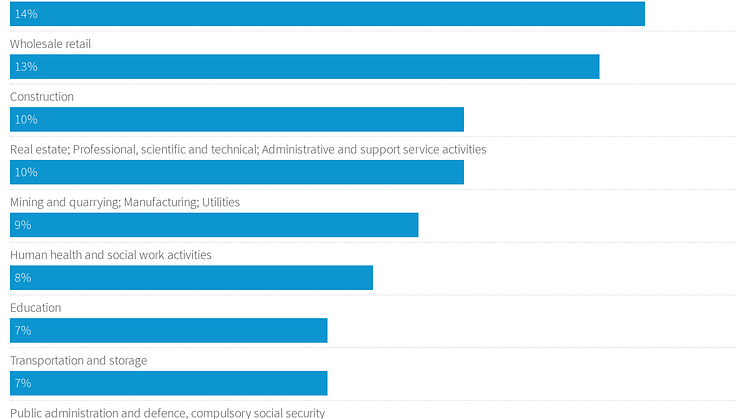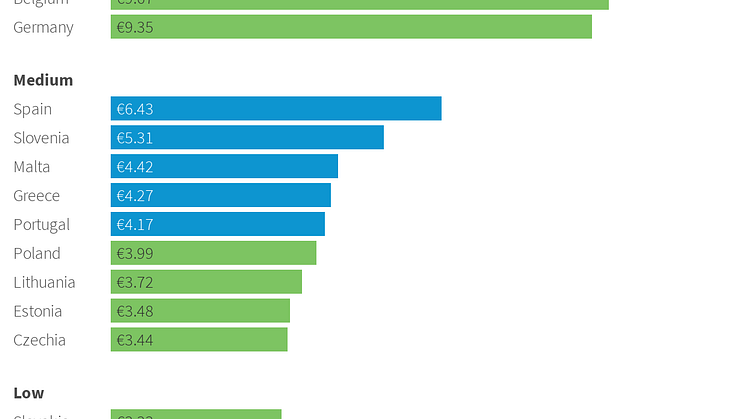
News -
Minimum wage workers on the front line of COVID-19 fallout
Minimum wage workers around Europe are in the simultaneous position of being increasingly called upon to provide essential services during COVID-19 confinement and response measures; as well as being more likely to be made redundant or furloughed due to their concentration in highly impacted sectors. There are high proportions of minimum wage workers in economically mobilised sectors such as cleaning services (16%), agriculture (15%) and retail (13%); but also among those most negatively impacted or curtailed, such as hospitality (16%), personal service work (16%), arts, entertainment, recreation (15%) and domestic work (14%).
These findings are detailed in Eurofound’s new Minimum Wages in 2020 Annual Review. The report presents the situation with regards to minimum wages in Europe immediately preceding the outbreak of the pandemic, and analyses how recent developments have impacted it further. It shows that, despite recent increases in minimum wages across Europe, 7 out of 10 minimum wage workers report at least some difficulty in making ends meet, as compared to less than half of other workers. It also notes that financial precarity varies greatly between countries, with less than 10% of minimum wage workers finding it difficult or very difficult to make ends meet in Denmark, Finland, Germany and Sweden; compared to 50% to 60% in Bulgaria, Croatia and Cyprus, and 80% in Greece.
The coronavirus pandemic will contribute to the financial insecurity of minimum wage workers, while paradoxically underlining the importance and added value of their work in many sectors. It has also placed greater emphasis on the importance of the work of the European Commission and its consensus-based initiative around fair minimum wages.
Speaking about the findings of the report, Christine Aumayr-Pintar, Eurofound Research Manager, said “COVID-19 has resulted in significant disruption to both labour markets and broader society in Europe, with minimum wage earners disproportionately exposed not only to the health risks, but also to the employment impacts of this crisis. Although, based on their industry, we can see that there are two distinct categories of minimum wage worker emerging, Europe must be united in putting the interests of minimum and low-wage workers at the forefront of recovery measures.”
Read more:
Read further:
- Full report: Minimum wages in 2020: Annual review
- Infographic: Minimum wages in Europe
- Data: Statutory minimum wages in the EU
- Topic page: Minimum wages
- Blog: Fears and hopes around future minimum wages (15 January 2020)
- COVID-19 EU PolicyWatch: Eurofound’s database on national level initiatives
Living, working and COVID-19:
On 9 April 2020, Eurofound launched the first wave of a large-scale online survey across the European Union and beyond to capture the immediate economic and social effects of the COVID-19 crisis.
Almost three months on, Eurofound launches a second wave of the survey on 26 June to compare the situation as economies and societies begin to reopen with the situation during the lockdown phase. Click here to contribute to our findings.
Graphs:







